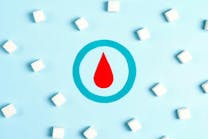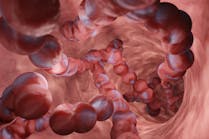Earlier this year, a kidney recipient in a New York City hospital contracted HIV from the transplanted organ, which came from a living donor, according to the New York State Department of Health. Although an initial screening had been performed on the donor, he or she apparently had been infected with HIV after the test but before donating the kidney. As a result, the Department of Health has begun recommending that hospitals test donors for HIV, as well as the hepatitis C and B viruses, within 14 days of donating an organ.
The donation of the infected kidney, while quite rare, raises critical questions about the safety risks involved in organ transplantation, and specifically about how and when donors are screened. The 14-day period recommended by New York State may not be good enough. Fortunately, tests exist that could screen for HIV and HEP on the very day an organ is donated.
For example, Chembio Diagnostics of Medford, New York, has developed a patented, next-generation testing approach known as Dual Path Platform (DPP®) technology. Its original focus is rapid HIV testing, although it can be adapted to test for numerous infectious diseases, including influenza A/B and HEP B/C. These point-of-care assays are intended to significantly shorten the time to diagnosis and lessen the costs of testing. They incorporate a range of features, including a good control of challenging sample types such as oral fluid, and an excellent capability for multiplexing—testing for multiple diseases simultaneously.
Based on products in development, the assays can have up to eight test lines on them, each of which is capable of confirming the presence of a specific condition at the same time. A five-line confirmatory test for HIV 1 & 2 is already being used in Brazil. In approximately 15 minutes, with just one blood sample or oral fluid sample, these tests could potentially determine to a very high degree of accuracy whether, for example, an organ donor is HIV-positive and/or whether he or she has HEP B/C. If performed immediately before an organ donation, this would greatly lessen the chances of an infected organ being transplanted into a patient.
Healthcare facilities currently employ a range of standard screening tests for antibodies to HIV. A new generation of rapid HIV tests can produce results within 20 minutes or less and allow testing, counseling and patient referrals to be accomplished in a single visit to a healthcare provider. These rapid tests are less costly for testing agencies to perform due to the decreased number of outreach visits required to deliver results. The rapid tests can be safely stored at room temperature for up to 24 months before being used, making them ideal even for the over-the-counter market as viable HIV tests to be self-administered by individuals at home.
A new generation of rapid point-of-care tests for HIV and HEP B/C could help ensure that donated organs are free of disease, and that tragic incidents like the donation of infected organs do not reoccur.
Lawrence Siebert is president of Chembio Diagnostics, a New York-based developer and manufacturer of rapid diagnostic tests for the growing point-of-care testing market. He can be reached at (631) 924-1135 or [email protected].
This column addresses compliance, regulatory, legal, certification, and additional concerns in the lab. Readers can submit questions to [email protected].





